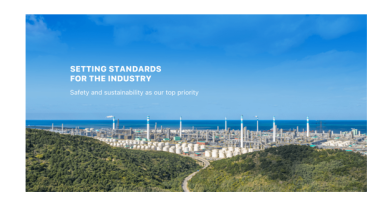Understanding the Hidden Costs of WordPress Hosting: Essential Insights Before You Purchase

WordPress is now the standard platform for building websites, powering about half of all sites available today. It’s a favorite among millions—ranging from businesses to individual bloggers—thanks to its versatility and ease of use. However, many users purchasing WordPress hosting are often shocked by unforeseen expenses that can accumulate quickly. This post aims to shine a light on these hidden costs, providing you with the knowledge needed to make a smart hosting decision.
A Look at Initial Prices vs. Long-Lasting Expenses
A common strategy among hosting providers is to entice customers with incredibly low starting prices. You might spot offers advertising WordPress hosting as low as £1 monthly for newcomers. While these introductory deals can be quite attractive, it’s vital to look beyond just the starting cost and think about what your expenses will look like as time passes.
Standard Renewal Rates: After the initial promotional period, the prices often escalate drastically. For example, after the £1 monthly period ends, you might face a spike up to £4.99 a month—transforming your initial £6 expense for half a year into a yearly cost of about £60.
Commitment Duration: Also, various hosting providers could lock you into lengthier contracts if you want to grab those special rates. Even though annual plans might lower your costs compared to a monthly model, they necessitate a bigger upfront payment.
Limitations on Resources and Upgrading Needs
On the surface, many basic WordPress hosting packages appear quite appealing, but they frequently come with restrictions on resources that aren’t readily visible.
Bandwidth and Storage Options: While a few providers claim to offer unlimited resources, others impose strict caps. If your site grows and starts luring in more visitors, you may need to upgrade to pricier plans just to keep up with the demand for traffic and storage space.
Computer Power: Entry-level hosting packages typically feature restricted processing capabilities and memory. If your website increases in complexity or sees a flare-up in visitor counts, it might be necessary to switch to a plan with more power to ensure it continues to function smoothly.
Essential Features and Add-Ons You May Need
Many basic WordPress hosting solutions may not offer several key features you’d assume would be standard. This might lead to surprise expenses when you recognize that you need those extras to keep your site running efficiently.
SSL Certificates: On one hand, some providers throw in SSL certificates for free, while others require payment for this significant security element. Given the expectation of HTTPS as a security measure today, missing out on this feature can lead to unforeseen costs down the line.
Email Services: A professional website usually demands custom email addresses tied to your domain, but not all hosting packages offer this, which could lead to more expenses if you require that feature.
Regular Backups: Keeping your website secure is crucial, and regular backups help. Some hosts offer limited backups or charge further for automatic backup solutions.
The Cost of Performance Upgrades
Maintaining an effective WordPress site can require some extra spending to ensure high efficiency.
Caching Tools: Some hosting options include built-in caching, but many require you to buy and configure separate caching solutions to enhance your website’s speed and responsiveness.
Content Delivery Networks (CDNs): Could greatly benefit your site by boosting loading speeds across the globe, yet typically they are not part of basic hosting packages—and would incur an additional charge.
Necessary Security Investments
Because WordPress sites are frequent targets for cyberattacks, having superior security is a top priority.
Threat Protection: Basic hosting often skips solid security offerings. To guard against dangers, you may need to invest in specialized plugins to monitor and remove malware.
Advanced Firewalls: Typically available as extras, you might also need to pay for extensive firewall services to grant your site better protection.
Charges for Support and Management
The level of assistance you receive can fluctuate widely among different hosting providers and can affect overall expenses significantly.
Managed Hosting Options: Going for managed WordPress hosting could save you time and eliminates many of the headaches that come with self-management. However, you can expect to pay more compared to standard shared hosting alternatives.
Enhanced Support: Some hosting companies add costs for prioritized service or broader help concerning WordPress-related issues.
Costs Linked to Your Domain Name
A domain is a vital aspect of your online presence but might bundle some fees you’re not initially aware of.
Domain Registration Fees: Elsewhere, certain hosting plans ensure your first year’s domain registration fees are covered. However, remember you’ll still confront some renewal fees following the first year.
Privacy Features: If you need to keep your data hidden from the publicly accessible WHOIS database, you’ll more than likely have to buy privacy protection for an added expense.
Anticipating Growth and Associated Costs
As your website expands, housing concord is bound to change along with potential arising expenses.
Plan Changes: Transitioning from shared hosting to dedicated or VPS hosting, as your sites’ requirements escalate, can lead to a considerable bump in costs.
Database Impact: If your website maintains a large database, it might diminish site performance and push you towards investing in better hosting alternatives.
Time as a Hidden Expense
There’s an additional hidden cost that isn’t monetary. Managing your WordPress website can seriously consume your time.
Update Management: To keep WordPress and your themes or plugins functioning correctly, you’ll need to keep them updated regularly. While some hosting services automatically handle updates, it’s not a universal rule.
Issue Resolution: When tech problems arise, resolving them tends to take considerable time, especially if it’s not your area of expertise.
Final Thoughts
Although starting prices for WordPress hosting can be very appealing, it’s crucial to have a broader understanding of your future financial obligations before committing to a service. Unseen expenses can sneak up on you, converting what started as a budget choice into a hefty investment.
When weighing your WordPress hosting alternatives, don’t just focus lightly on the enticing starting prices—consider all renewal costs, resource constraints, enticing features, and any potential future expenses. Look for fine-print details on what is included in initial offerings and which features may mean additional charges.
Providers like NetNerd offer specialized WordPress hosting with transparent pricing and ample inclusions that could curb some of these hidden expenses. They provide various features to boost site performance, security, and management tools that might be billable elsewhere.
In the end, the ideal WordPress hosting choice for your site shifts with your individual requirements, budget limits, and technical skills. Being cautious of these potential fees can empower you to make a stronger choice, aligning with a hosting plan supporting your objectives without overwhelming your finances.
Always remember, the lowest price doesn’t mean the greatest overall value. Evaluate the entire financial commitment involving direct costs and the worth of your invested time. A modestly more expensive host that ensures vital features and reliable support could save you from trouble in the long haul.
With thoughtful contemplation of your hosting choices-next considering all factions-from performance to management and future growth-you’re setting your site up for triumph without incurring excessive costs.




